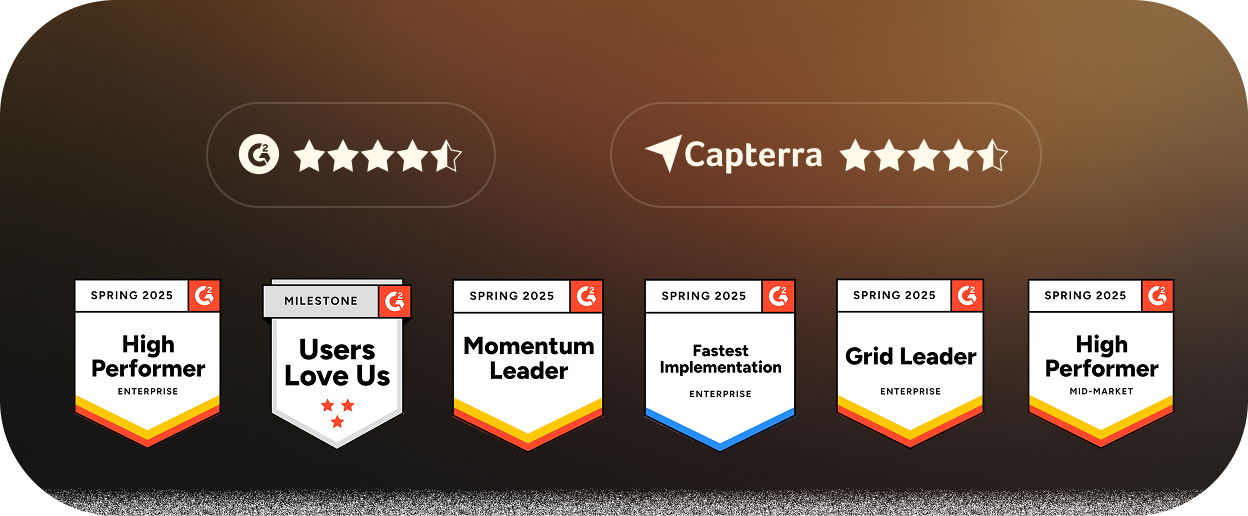
Glossar Begriffe
Plum - Plattform für Belohnungen, Anreize und Auszahlungen
FMCG-Belohnungen
FMCG rewards are crucial in influencing consumer behavior, driving engagement, and ultimately impacting sales and revenue. The fast-moving consumer goods (FMCG) industry is characterized by intense competition and rapidly changing consumer preferences. In this dynamic environment, the significance of rewards cannot be overstated.
What are FMCG rewards?
FMCG rewards refer to various incentive programs and initiatives companies implement in the fast-moving consumer goods sector. These rewards are designed to attract and retain customers, encourage repeat purchases, and foster strong relationships with retailers.
What are the different types of FMCG rewards?
The different types of FMCG rewards are:
- Loyalty programs: Loyalty programs are structured to reward customers for repeat purchases. Points, discounts, or exclusive offers often incentivize loyalty, encouraging consumers to choose a particular brand consistently.
- Promotional rewards: Promotional rewards involve short-term incentives such as discounts, free samples, or limited-time offers. These promotions aim to drive immediate sales and create a sense of urgency among consumers.
- Incentives for retailers: Manufacturers in the FMCG industry often offer incentives to retailers to ensure prominent shelf placement, increased visibility, and effective product promotion.
What are the challenges and solutions of the FMCG rewards in the respective industry?
Die Herausforderungen und Lösungen sind:
1. Common challenges in implementing FMCG reward programs
- Consumer engagement issues: Overcoming consumer apathy towards rewards programs requires innovative strategies to capture attention and maintain interest.
- Technological and operational challenges: Implementing and managing reward programs may face technological barriers and operational complexities that must be addressed for seamless execution.
2. Best practices and solutions
- Overcoming technological barriers: Embracing advanced technologies, such as mobile apps and AI-driven platforms, can enhance the efficiency and effectiveness of FMCG reward programs.
- Strategies for increasing consumer participation: Engaging marketing campaigns, clear communication, and simple reward program structures can encourage higher consumer participation.
How to analyze FMCG rewards impact on sales and revenue?
To analyze, you must start:
1. Analyzing the direct influence of rewards on sales
- Measuring Sales Uplift from loyalty programs: Loyalty programs contribute directly to sales uplift by encouraging regular purchases and increasing the average transaction value.
- Examining the ROI of promotional rewards: Assessing the return on investment for promotional rewards helps companies understand the effectiveness of short-term campaigns in driving immediate sales.
2. Long-term revenue growth
- Creating sustainable revenue streams: FMCG rewards contribute to sustainable revenue growth by fostering brand loyalty, which leads to a steady stream of repeat business.
- Balancing short-term and long-term objectives: Striking a balance between short-term promotional rewards and long-term loyalty programs is essential for maintaining financial stability and growth.
How can you measure the success of an FMCG reward program?
Success can be measured using:
- Redemption rate: A high redemption rate shows that customers find the rewards valuable and are actively engaging with the program.
- Repeat purchase rate: An increase in repeat purchases indicates that the program is successfully encouraging customer loyalty.
- Customer lifetime value (CLV): A higher CLV suggests that the program is contributing to long-term customer retention and revenue growth.
- Enrollment & participation: Strong enrollment numbers and active participation show that the program is attracting and retaining interest.
- Sales uplift: A noticeable increase in sales after launching the program reflects its positive impact on revenue.
- NPS & feedback: Positive Net Promoter Scores and customer feedback help assess satisfaction and brand perception.
- ROI: A good return on investment indicates that the financial gains outweigh the costs of running the program.
What compliance issues should FMCG companies consider when designing reward programs?
Key compliance areas include:
- Data privacy: Companies must follow GDPR, CCPA, and other local regulations to collect, store, and use customer data responsibly.
- Fair promotions: All reward offers must be transparent, with clear terms and no misleading or exaggerated claims.
- Tax compliance: Businesses should account for any applicable taxes related to the rewards offered.
- Legal regulations: Companies must comply with local laws governing sweepstakes, contests, and promotional advertising.
- Anti-bribery: Especially in B2B programs, companies must ensure rewards do not violate anti-bribery or anti-corruption laws.
- Inclusivity: Reward programs should be designed to be inclusive, accessible, and fair to all customer segments.
















